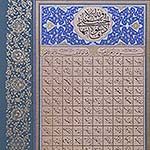Understanding Sufi Tariqas
All true Sufi tariqas have a lineage that is traceable to Prophet Muhammad (peace be upon him) through his son-in-law Hazreti Ali (may Allah be pleased with him) or Hz. Abu Bakr (may Allah be pleased with him). According to hadith (tradition; saying attributed to, or anecdote regarding Prophet Muhammad [pbuh], according to traditional eyewitness accounts) the Prophet (pbuh) taught these esteemed individuals how to do zikr (the Sufi practice of repeating the Names of Allah) in two different ways. These methods were passed down through generations and are the foundation upon which the Sufi tariqas were later established.


The various Sufi tariqas (Sufi orders; literally, paths) were established by their founders in response to the needs of different kinds of people. If a person is drawn to a particular school of Sufism, such as the Qadiri Tariqa or Mevlevi Tariqa, it is because that school has a flavor or character that addresses the particular needs of that individual. This can be thought of in the same light as vocational schools. If a person has a deep desire to become a chef of Chinese cuisine, he does not go to a master of French cuisine for training. Likewise, each spiritual seeker has a particular character that can be well served by a tariqa suited to his or her personality.
The shaykhs of the path have been assigned an area of work and they may only accept the people who belong to them. While everyone is welcomed as a guest, it is understood that a true shaykh will recognize the people who belong to him or her and can only accept his or her own spiritual “children" as murids (students of Sufism; lit., committed ones). The shaykhs understand that their tariqa is "best" only for those people who Allah sends to them, and that no one, besides Allah, can be all things to all people.
Among the true tariqas there is general agreement about the essential tenets of Sufism. There is no competition among the tariqas. No tariqa claims that they have the one true way, or that it is higher than other orders.









